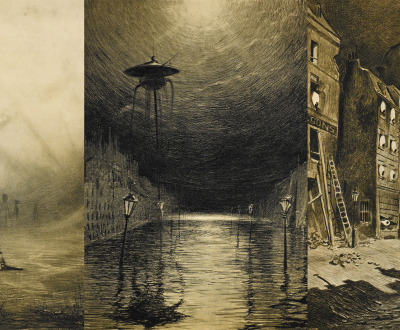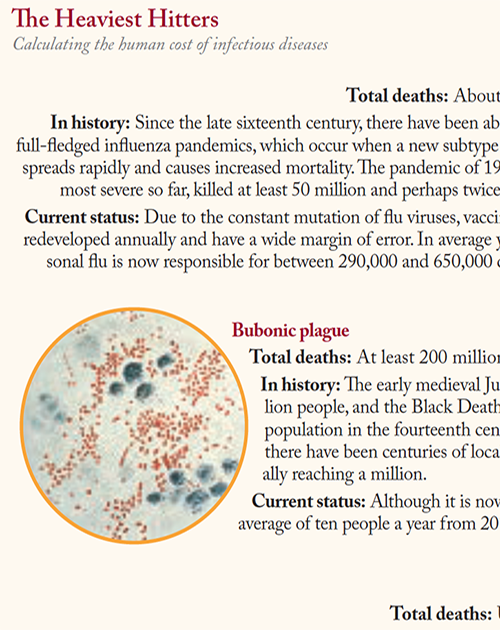Miscellany
“By the end of the fifteenth century, when the power of theology was exhausted and the patriarchal understanding of the origin of kingship no longer satisfied people’s appetite for science, politics started to develop as a science,” wrote political theorist Carl Schmitt. “Dictatorship, in particular, is described as a specific arcanum dominationis of the aristocracy. Its purpose is to create an institution that frightens the people into believing that it constitutes an authority against which there is no possibility of provocation…In the state certain events are always necessary that conjure the impression of freedom, simulacra or decorative occasions designed to pacify the population.”
Miscellany
In 1890 Russian botanist Dmitri Ivanovsky was commissioned to study a disease destroying tobacco plants in Crimea. Filtering the sap from affected plants, Ivanovsky discovered in 1892 the presence of a small parasitic microorganism invisible under great magnification—a virus—which he thought was a minuscule bacterium. In 1898 Dutch microbiologist Martinus W. Beijerinck became the first person to recognize viruses as reproducing entities distinct from other organisms.
Miscellany
In 1978 Janet Parker, a medical photographer at the UK’s Birmingham Medical School, worked one floor above the microbiology department, where smallpox research was being conducted. She became ill on August 11 but was not diagnosed with smallpox until nine days later. A subsequent investigation concluded Parker had been infected either through the building’s duct system or by visiting the microbiology department. She died on September 11, 1978, becoming the last known person to die of smallpox.
Pages



